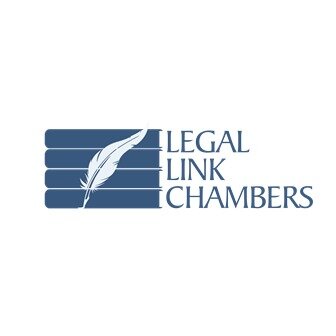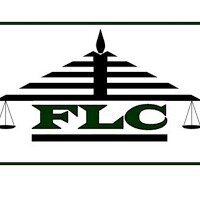Best Restructuring & Insolvency Lawyers in Kigali
Share your needs with us, get contacted by law firms.
Free. Takes 2 min.
List of the best lawyers in Kigali, Rwanda
About Restructuring & Insolvency Law in Kigali, Rwanda
Restructuring and insolvency law in Kigali, Rwanda governs the legal processes businesses and individuals follow when facing financial distress or insolvency. The main goal is to offer mechanisms that help debtors manage their obligations while protecting the interests of creditors. This area of law covers procedures for reorganizing a financially troubled business, as well as the orderly liquidation of assets when restructuring is not possible. Kigali, as Rwanda's capital and commercial center, follows national regulations administered under the Rwandan Company Law and Insolvency Law, with unique local practicalities due to its economic environment.
Why You May Need a Lawyer
There are several common situations in Kigali where individuals and businesses may require legal assistance with restructuring and insolvency matters:
- If your company is unable to pay its debts as they fall due and is considering voluntary or court-mandated restructuring or liquidation.
- If you are a creditor seeking to recover outstanding debts from a debtor facing insolvency.
- If you are involved in negotiations to restructure loans, renegotiate contracts, or dispose of assets to improve financial stability.
- If you require guidance navigating court procedures or wish to dispute claims in insolvency proceedings.
- If you are an investor interested in acquiring assets from a distressed company or participating in a restructuring process.
Legal advice is crucial in these situations to ensure compliance with local laws, understand your rights and obligations, manage risk, and achieve the best possible outcome.
Local Laws Overview
Key aspects of local restructuring and insolvency laws in Kigali, Rwanda, include:
- The primary statutes are the Companies Act and the Law Governing Insolvency and Bankruptcy of Individuals and Companies, which lay out procedures for restructuring, liquidation, and bankruptcy.
- Rwandan law provides for both voluntary and involuntary insolvency procedures, allowing creditors or debtors to initiate proceedings.
- A court-appointed administrator often oversees the insolvency procedure, managing the debtor's assets and acting in the interests of creditors.
- Protection for creditors is balanced with the possibility for debtors to restructure and continue viable operations, especially in cases where a business can be restored to health.
- The Rwanda Commercial Court in Kigali supervises most insolvency cases involving companies based in the city.
- Special provisions exist for cross-border insolvency situations, particularly when assets or creditors are outside Rwanda.
- There are set timelines for filing, notice, meetings of creditors, and court decisions, aiming for efficient resolution.
Understanding these laws ensures all parties involved in restructuring and insolvency proceedings can protect their interests and make informed decisions.
Frequently Asked Questions
What triggers an insolvency proceeding in Kigali, Rwanda?
Insolvency proceedings typically start when a debtor cannot pay their debts as they fall due, or when their liabilities exceed their assets. Either the debtor or a creditor can apply to the court to initiate insolvency procedures.
What are the main types of insolvency procedures in Kigali?
The main procedures are company restructuring (business rescue), liquidation (formal winding up), and bankruptcy for individuals. Each has its own legal steps and requirements.
Can creditors force a debtor into insolvency?
Yes, creditors can file a petition in court if the debtor is failing to meet payment obligations, seeking to force either restructuring or liquidation.
How are creditors' interests protected in Rwandan insolvency law?
Creditors' claims are reported to the insolvency administrator, ranked by priority, and typically paid from the debtor's available assets. Secured creditors often have first priority.
What is the role of an insolvency administrator?
The insolvency administrator takes control of the debtor's assets, reviews creditor claims, manages business operations during restructuring, and organizes the distribution of assets if liquidation is required.
Can a business continue operating during insolvency proceedings?
In certain cases, especially during restructuring, the law allows the business to continue operating under supervision to facilitate recovery or attract buyers.
Are insolvency procedures confidential?
Court procedures are generally public, but some details may be kept confidential depending on the case and the court's orders.
Can individuals also be declared insolvent?
Yes, insolvency and bankruptcy laws in Rwanda apply to both companies and individuals who are unable to meet their financial obligations.
What penalties exist for directors or managers during insolvency?
Directors can face penalties if they are found to have acted dishonestly, engaged in fraudulent trading, or mismanaged the company leading up to insolvency.
How can legal advice help during restructuring or insolvency?
Lawyers provide guidance to ensure proper procedure, protect your rights, draft agreements, represent you in negotiations or court, and help achieve favorable solutions.
Additional Resources
If you need more information or are seeking guidance, several resources and organizations may be helpful:
- Rwanda Bar Association - Offers directories for finding qualified legal professionals in Kigali.
- Rwanda Development Board (RDB) - Provides useful information on business registration, insolvency, and restructuring procedures.
- The Commercial Court of Kigali - Handles commercial disputes, including insolvency cases.
- Institute of Certified Public Accountants of Rwanda (ICPAR) - Can recommend financial professionals often involved in restructuring.
- Legal Aid Providers - Various NGOs and legal clinics in Kigali offer assistance, particularly for individuals and small enterprises.
Next Steps
If you or your business is experiencing financial distress or facing insolvency, consider the following actions:
- Consult with a lawyer who specializes in restructuring and insolvency in Kigali for tailored advice.
- Gather all relevant financial documents, including statements, contracts, and debt records, to inform your lawyer.
- Contact the Rwanda Bar Association or visit a legal clinic for referrals if you do not already have a legal counsel.
- Stay informed about your legal rights and obligations to avoid preventable liabilities or penalties.
- Be proactive in communicating with creditors and stakeholders, ideally through your legal representative.
Early action and professional legal guidance can help achieve the most favorable outcomes during restructuring and insolvency in Kigali, Rwanda.
Lawzana helps you find the best lawyers and law firms in Kigali through a curated and pre-screened list of qualified legal professionals. Our platform offers rankings and detailed profiles of attorneys and law firms, allowing you to compare based on practice areas, including Restructuring & Insolvency, experience, and client feedback.
Each profile includes a description of the firm's areas of practice, client reviews, team members and partners, year of establishment, spoken languages, office locations, contact information, social media presence, and any published articles or resources. Most firms on our platform speak English and are experienced in both local and international legal matters.
Get a quote from top-rated law firms in Kigali, Rwanda — quickly, securely, and without unnecessary hassle.
Disclaimer:
The information provided on this page is for general informational purposes only and does not constitute legal advice. While we strive to ensure the accuracy and relevance of the content, legal information may change over time, and interpretations of the law can vary. You should always consult with a qualified legal professional for advice specific to your situation.
We disclaim all liability for actions taken or not taken based on the content of this page. If you believe any information is incorrect or outdated, please contact us, and we will review and update it where appropriate.














